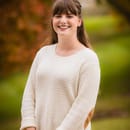This Thursday, May 16, the Medieval and Early Modern Society (MEM/MEMS) is holding a lecture with three faculty members to discuss medieval gender and sexuality in the last talk of a series that was put on this semester. For too long, medieval studies and feminist studies have been apart and it’s thanks to the works of academics like these who close the bridge and make room for feminist studies in every area of history and literature. Drs. Mitchell, Krause, and Blanton of UMKC will be holding a roundtable on Thursday, May 16, at the Kansas City Public Library: Plaza Branch at 6:30 PM in the Cohen Conference Center. I had the pleasure to sit down with Dr. Blanton for a quick interview about the upcoming lecture.
1. What inspired you and the MEM society to create this lecture series?
Dr. Krause heard about some diversity monies that were available to support a lecture series and she suggested we organize one – so it was her idea that jump-started our conversation. As we worked on it, I was certain I wanted to have Cord Whitaker and Sierra Lomuto, so I lobbied for them as “new voices” in the field who would be able to say something important about the appropriation of the field by the alt-right, about the institutional history of medieval studies as a field of “white scholars” and medieval studies as a field with an infrastructure that supports it remaining focused on white Europeans. It’s important, I think, to support the Medievalists of Color and this series seemed a great way to showcase their scholarship and activism and boost our presence in Kansas City as local medievalists who are supportive of a broadened sense of what medieval studies can be as a field.
2. What has been the greatest take away for you as a professor of the medieval?
My spring course on medieval romance has focused on race, class and gender, and while I have taught this course here since 2003 or 2004, I intentionally reworked the primary and secondary readings to coordinate with this lecture series in Spring 2019. The changeup has been great for me, as I have read a lot of new scholarship and I’ve challenged myself to read more critical race theory. The best part of this has been our engaging conversations in class, as well as the class members’ ability to ask our visiting lecturers thoughtful and informed questions. I have also loved hearing from these scholars how much they have enjoyed interacting with our students and their ideas.
3. What would you like to say to those who would appropriate the medieval culture for the alt-right purposes?
Continuing to view the European middle ages as whites-only geography is a gross misrepresentation of history. When we think of the medieval past, we always imagine ourselves as part of the elite (kings and queens, knights and ladies), but in reality, most of us would have been but peasants and the world around us would have been much different from what we see in Braveheart or Robin Hood.
We have an obligation, therefore, to use data to show the vitality of the European middle ages, even as we must think more about what scholars are calling “the global medieval,” or engaging the whole world from about 500-1500, rather than just Europe. To pretend that the medieval world of present-day Europe was only inhabited by white people is false; to pretend that this was a glorified time for white people who ruled wisely and justly is also false. Europeans enacted some horrible atrocities, especially during the Crusades, and we need to not reify Crusader culture and remake it as a touchstone for present-day concerns. And, we also need to be aware of how Crusaders began the problem of colonization and helped frame the racial, ethnic and religious tensions that we continue to experience worldwide. So understanding this history and seeing it from multiple perspectives (not just the perspective of white Christian Europeans) is imperative. Likewise, our ability to think about the past as complex and problematic is very important for understanding what is at stake when we study the medieval world.
4. What should we do after this lecture series to keep this conversation going on campus?
Students and faculty can both be proactive by having formal and informal conversations about the new scholarship, reading medieval texts that are not routinely taught in college classrooms, and writing blog posts and making the conversation a public one, rather than an academic one. We can, moreover, resist the easy commodification of the European middle ages as white, even as we resist the glorification of a white medieval past. Sometimes, this can be a small conversation, a short observation in a quiet moment; at others, it might mean being politically active to resist the appropriation of this field by those who want to use an iconography of white, elite people as a clarion call for hatred.
Also, the Medieval Studies Society is planning a “Medieval Day” next fall, and I hope that there will be elements of a “global medieval” added to that programming. That would be a great way to make some difference by challenging attendees perceptions.
5. What medieval fashion statement should be brought back in 2019?
The butterfly hennin!
The only way to find out if Dr. Blanton shows up in a spicy butterfly hennin is to come check out the lecture. This will be a great opportunity to gain some more insight about what’s going on with feminism in the academic world and how scholars are working to make females more visible in history. I’ll see you there!


